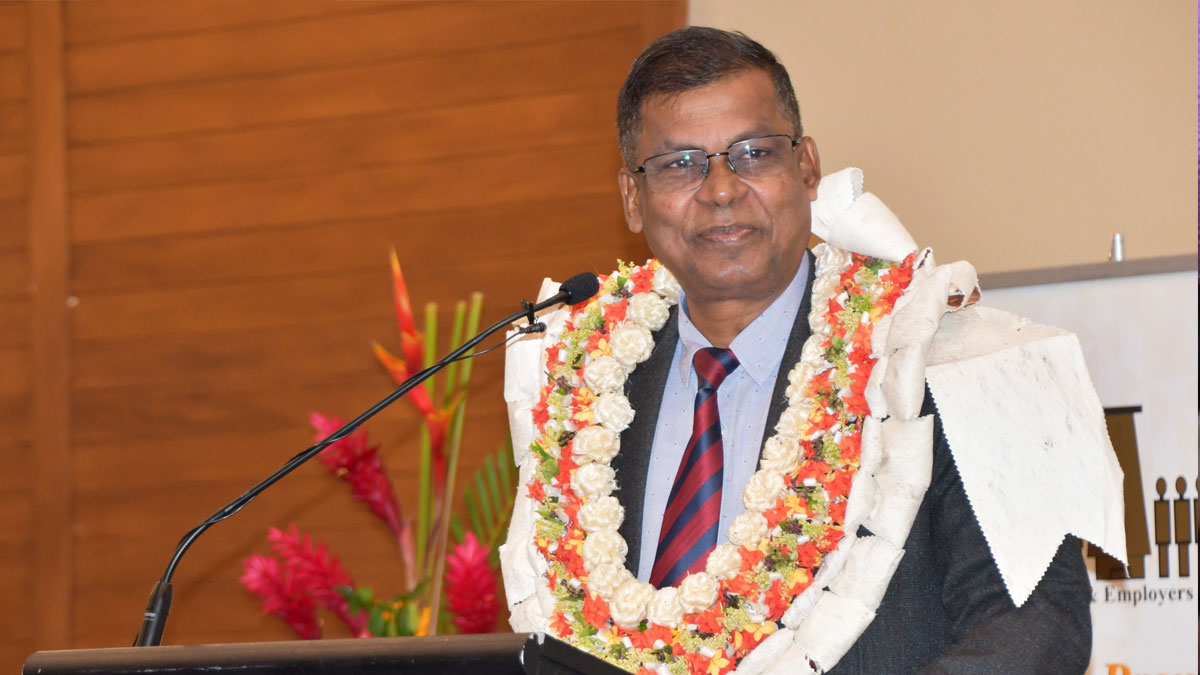
If there is anything you can learn from our experience, it is to never allow your independent institutions for evidentiary national data gathering and analysis to be gutted and manipulated to suit political agenda.
Those were the words of Deputy Prime Minister and Minister, Professor Biman Prasad while opening the Evidence-Based Policy Making for Decent Work ILO - Pacific Islands Regional Training in Nadi today.
Professor Prasad says such was our sorry experience with our national Bureau of Statistics and the Office of the Auditor General, amongst other institutions, whose independence were almost neutralised by our previous Government.
He says it is a sad and sorry legacy left behind by those who didn’t give a damn to evidence based policy making and led us almost to the brink of economic disaster.
Professor Prasad says this has resulted in the Coalition Government allocating more taxpayer funds to re-build these core institutions so that they can honestly and without any interference provide the government with the portrait of the nation – which is the good, the bad and the ugly.
The Deputy Prime Minister says Governments must be able to get unfiltered truth in real time so that if and when new and emerging issues arise, they can mitigate risks and realign their policy and legislative approaches as quickly as possible.
Professor Prasad says, in terms of those who can aid officials in evidence gathering or data collection, they should not be afraid of their own experts in the trade unions, NGOs, community-based groups, industry leaders as well as the media.
He says they can help you count for your evidence-based planning strategies.
Professor Prasad says he appreciates that while it may seem daunting, but the taxpayers are very likely talking to them more regularly than they are talking to bureaucrats, researchers and academics.
He says they are excellent "sentinels" of early warnings or alerts that can guide evidence-based policy work.
The Deputy Prime Minister also stresses that the Coalition Government, as promised, has restored tripartite arrangements that we used to have prior to 2006.
He says they fully understand that the rights of workers must be respected through tripartism between employees, employers and the Government.
Professor Prasad says this is just the start of ensuring decent work, much more has to be and will be done, and it will take time but it will be evidence-based.
Stay tuned for the latest news on our radio stations

